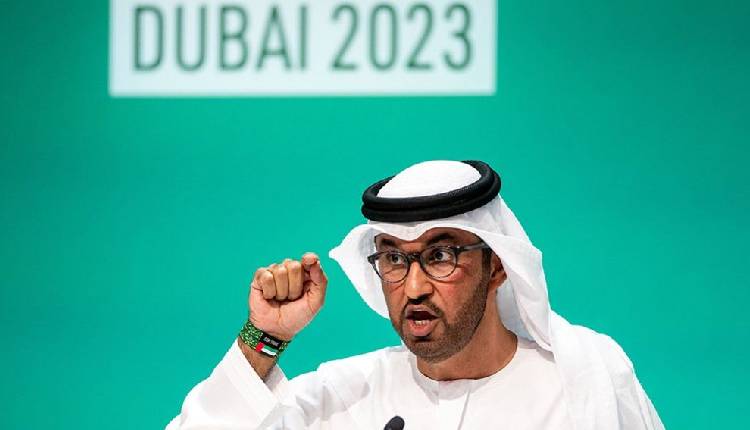COP28 approves ‘historic’ climate deal on fossil fuels
Sultan Al-Jaber, President of COP28, announced on Wednesday that the final draft of the Global Stocktake received approval as there were no objections.
Al-Jaber said, “through the night and the early hours of the morning, we worked collectively to reach consensus. The presidency listened, engaged, and guided. I promised I would roll up my sleeves. And you, my colleagues, and my friends. You did step up.”
“You showed flexibility, and you put common interests ahead of self-interests. We have the basis to make transformational change,” he continued.
Al-Jaber described the deal as “historic,” saying: “we have language on fossil fuel in our final agreement for the first time ever.”
He emphasised that these pioneering actions are key to creating a cleaner world. He also credited the UAE’s success to cooperative actions and heartfelt communication, which he believes made a significant difference.
However, he warned that the worth of an agreement is determined by its implementation and actions; it’s crucial to initiate the required measures to convert this agreement into specific actions.
Simon Stiell, Executive Secretary of the United Nations, commented that this deal is the beginning of the end of fossil fuels.
Moreover, France referred to the Dubai agreement as a “victory for multilateralism and climate diplomacy.”
Despite calls from many countries and civil society organisations for an explicit commitment, the new climate deal draft lacked a clear commitment to either phase out or reduce the use of fossil fuels.
Rather, it urged nations to join global efforts to shift from fossil fuels in a just and orderly way, speeding up actions to achieve net zero by 2050, in keeping with the science.
It also called for a three-fold increase in global renewable energy capacity by 2030.
According to the Alliance of Small Island States (Aosis), the second draft was an improvement and included many of their suggestions, but still had a “litany of loopholes.”


